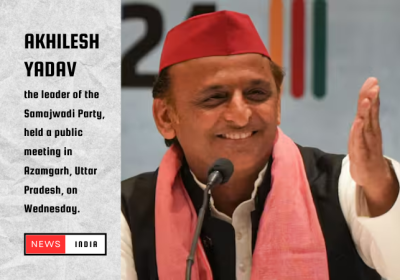Uttar Pradesh holds a pivotal position in Indian politics, with every major party, be it the BJP, Congress, Samajwadi Party, or BSP, assigning significant importance to the state.
- By --
- Saturday, 18 May, 2024
This is primarily due to its demographic weight, which, according to the 2011 census, contributed 17% of the country's total population. The state's electoral significance is underscored by its historic role in shaping the country's leadership, which is especially evident in national elections.
Uttar Pradesh remains a focal point in the context of the 2024 Lok Sabha Elections. Since India's independence in 1947, Uttar Pradesh has served as the birthplace of six Prime Ministers and has been represented by nine Prime Ministers in the Lok Sabha. Remarkably, leaders from Uttar Pradesh have occupied the Prime Minister's office for 75% of the time in the 77 years since independence.
Key figures such as Pandit Jawahar Lal Nehru, Indira Gandhi, and Atal Bihari Vajpayee, along with incumbent Prime Minister Narendra Modi, have all hailed from Uttar Pradesh or represented constituencies within the state. This lineage underscores the state's political prominence and its impact on national governance.
With 80 Lok Sabha seats, Uttar Pradesh holds considerable sway in determining the composition of the central government. Despite the fluctuating fortunes of political parties in the state, its sheer size ensures that it remains a critical battleground for electoral success. As the largest state in terms of Lok Sabha seats and population, Uttar Pradesh plays an outsized role in shaping the political landscape of the entire nation.

.png)




